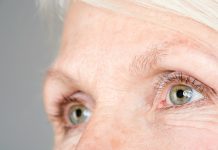
A recent study conducted by Michigan Medicine and Brown University reveals that women who have survived a stroke often believe they are at risk of receiving inadequate emergency care, primarily due to their gender and race or ethnicity.
This perception sheds light on potential disparities in emergency healthcare, impacting women who have experienced strokes.
Researchers examined survey data from the American Heart Association Research Goes Red Registry, aiming to understand the perceptions of emergency care among women with and without a history of stroke.
The study’s results, published in Stroke, indicate that women with a history of stroke are more than three times as likely to strongly believe that they would not receive adequate emergency care in the emergency room due to their gender and race or ethnicity.
Dr. Brian Stamm, the study’s first author, emphasizes the importance of these findings, noting that some women who have survived a stroke fear they won’t receive the highest quality care during health emergencies.
This concern is especially relevant because prior studies have shown that women who experienced cerebrovascular events, such as strokes, are more prone to misdiagnosis and less likely to receive clot-busting medications.
Gender Disparities in Stroke Outcomes
Stroke remains a significant health concern, particularly for women. In 2019, women accounted for 57.1% of stroke-related deaths, with stroke contributing to 6.2% of all female deaths, according to the Centers for Disease Control and Prevention National Vital Statistics System.
Additionally, Black Americans face a higher risk of stroke compared to white Americans.
Past research has indicated that Black women are less likely to receive advanced stroke therapies, partially due to delays in reaching the emergency department after experiencing stroke symptoms.
While this study did not directly measure delays in reaching the emergency department following a stroke, researchers suggest that these negative perceptions about healthcare may predispose women to delay seeking treatment.
Addressing Perceptions for Equitable Healthcare
Co-author Dr. Regina Royan emphasizes the need for future research to investigate whether these negative beliefs regarding emergency care lead to delays in stroke treatment.
Given the time-sensitive nature of stroke care, addressing these perceptions is crucial to achieving greater equity in healthcare.
In conclusion, the study highlights concerns among women who have survived strokes regarding the quality of emergency care they might receive, particularly due to gender and race or ethnicity.
This underscores the importance of addressing these perceptions and ensuring timely and equitable healthcare for all individuals, regardless of their medical history or demographics.
If you care about stroke, please read studies that diets high in flavonoids could help reduce stroke risk, and MIND diet could slow down cognitive decline after stroke.
For more information about nutrition, please see recent studies about antioxidants that could help reduce the risk of dementia, and tea and coffee may help lower your risk of stroke, and dementia.
Follow us on Twitter for more articles about this topic.
Copyright © 2023 Knowridge Science Report. All rights reserved.



